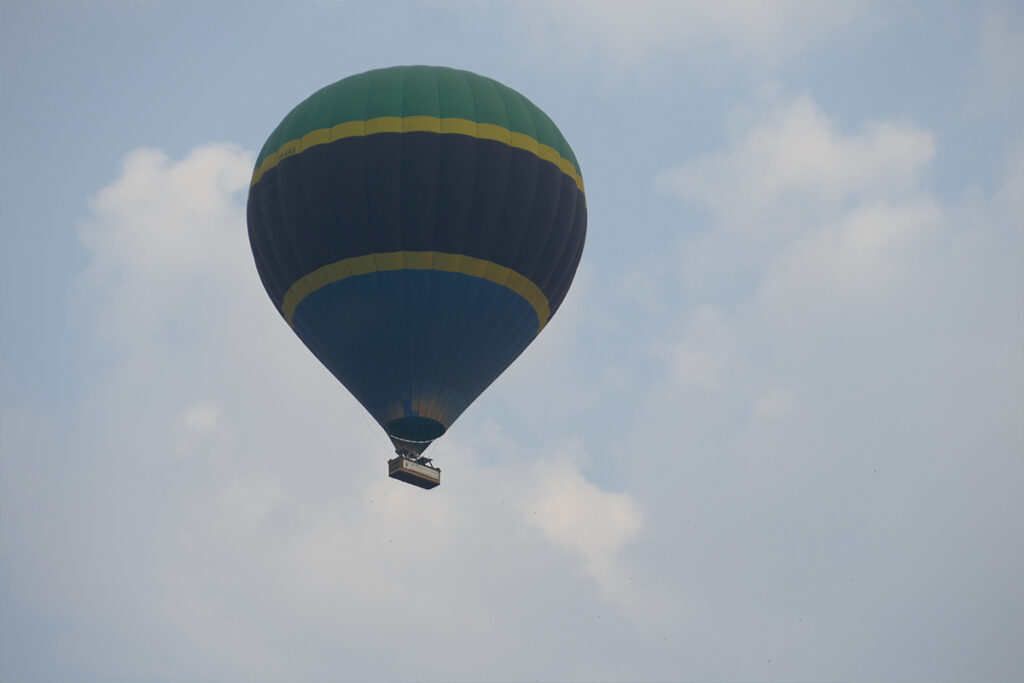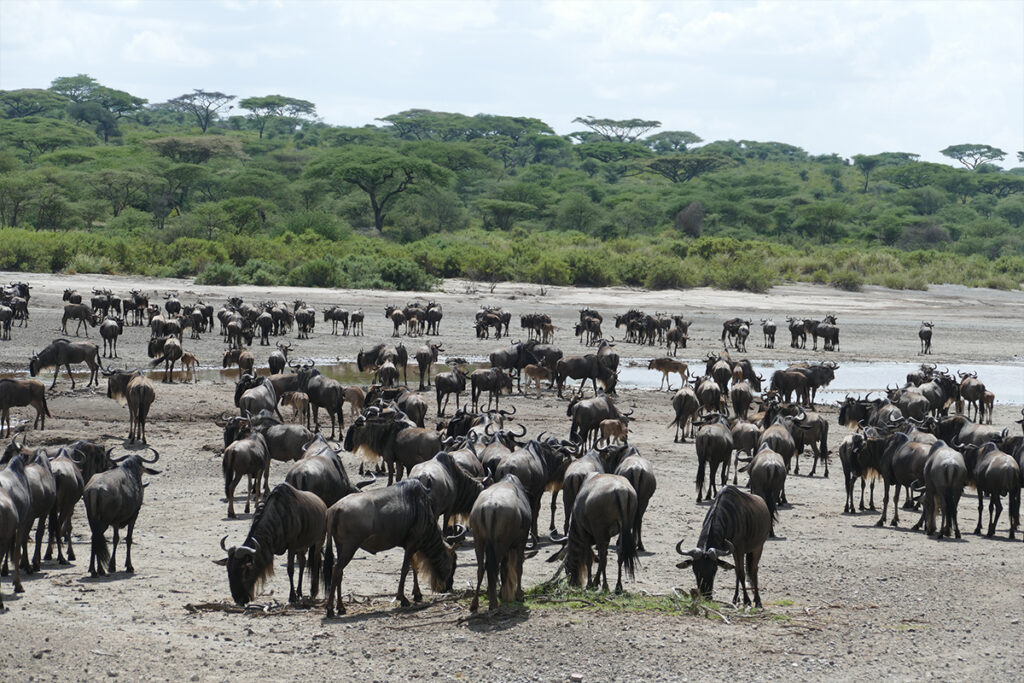Thinking of embarking on a solo safari adventure in Tanzania? You’ve come to the right place! Traveling alone can be a liberating and exhilarating experience, offering you the freedom to explore at your own pace and connect deeply with nature and culture. In this guide, we’ll provide you with comprehensive tips to make your solo safari in Tanzania safe, enjoyable, and unforgettable.
Planning Your Solo Safari
Researching Destinations
When planning your solo safari, start by researching the best destinations in Tanzania. Each park and reserve offers unique experiences, so it’s essential to understand what you want to see and do. Are you keen on witnessing the Great Migration in the Serengeti, or are you more interested in the diverse ecosystems of the Ngorongoro Crater?
Choosing the Right Time to Travel
Timing is crucial for a successful safari. The dry season, from June to October, is ideal for wildlife viewing as animals gather around water sources. However, the wet season, from November to May, offers lush landscapes and fewer tourists. Research the best time to visit based on your interests.
Budgeting for Your Trip
Set a realistic budget for your safari, considering costs like flights, accommodation, park fees, and guided tours. Tanzania offers a range of options from budget-friendly camps to luxury lodges. Prioritize your spending based on what matters most to you, whether it’s comfort, convenience, or adventure.
Preparing for Your Journey
Packing Essentials for a Solo Safari
Pack light but smart. Essentials include comfortable clothing, sturdy walking shoes, a wide-brimmed hat, sunscreen, insect repellent, and a good-quality camera. Don’t forget a first-aid kit, personal medications, and copies of important documents.
Health and Safety Precautions
Consult your doctor about vaccinations and medications needed for travel to Tanzania. Malaria prophylaxis, yellow fever vaccination, and other routine immunizations are recommended. Carry a comprehensive travel insurance policy that covers medical emergencies.
Understanding Local Customs and Etiquette
Respecting local customs and etiquette is crucial. Tanzanians are generally friendly and welcoming, but understanding their cultural norms will enhance your experience. Learn a few basic Swahili phrases, dress modestly, and always ask permission before taking photos of people.
Navigating Tanzania as a Solo Traveler
Transportation Options
Tanzania has several transportation options for solo travelers. Domestic flights are convenient for covering long distances quickly. Buses and shared taxis are budget-friendly options, while renting a car offers flexibility for exploring at your own pace.
Navigating Airports and Entry Points
Major entry points include Julius Nyerere International Airport in Dar es Salaam and Kilimanjaro International Airport. Familiarize yourself with visa requirements and entry procedures to ensure a smooth arrival.
Getting Around Safely
Use reputable transportation providers, especially when traveling between parks and cities. Avoid traveling at night and keep your valuables secure. If possible, join guided tours or safaris, which offer both safety and expert knowledge.
Accommodation Options
Lodges and Camps
Tanzania offers a wide range of accommodations, from luxury lodges to budget-friendly camps. Many lodges are located within or near national parks, providing easy access to wildlife viewing. Look for accommodations that offer good security and positive reviews from solo travelers.
Budget-Friendly Hostels and Guesthouses
For those on a tighter budget, hostels and guesthouses are excellent options. They offer basic amenities and the opportunity to meet fellow travelers. Sites like Airbnb also list affordable private rooms and homestays.
Luxury Safari Experiences
If you prefer a more comfortable and exclusive experience, consider luxury safari lodges and tented camps. These often include all-inclusive packages with guided tours, gourmet meals, and top-notch amenities.
Top Destinations for a Solo Safari in Tanzania
Serengeti National Park
The Serengeti is synonymous with the Great Migration, where millions of wildebeest and zebras traverse the plains. The park offers excellent opportunities for game drives, hot air balloon safaris, and guided walks.
Ngorongoro Crater
The Ngorongoro Crater is a UNESCO World Heritage Site known for its incredible biodiversity. The crater floor hosts a permanent population of wildlife, making it a prime location for year-round game viewing.
Tarangire National Park
Tarangire is famous for its large elephant herds and ancient baobab trees. The park is less crowded than the Serengeti, offering a more intimate safari experience.
Selous Game Reserve
Selous is one of the largest game reserves in Africa, known for its remote and unspoiled wilderness. It offers boat safaris, walking safaris, and classic game drives.
Zanzibar Archipelago
For a change of pace, head to Zanzibar for pristine beaches, historic Stone Town, and vibrant coral reefs. It’s an excellent destination for diving, snorkeling, and exploring Swahili culture.
Wildlife Viewing Tips
Best Practices for Safe Wildlife Viewing
Always maintain a safe distance from wildlife and follow your guide’s instructions. Use binoculars for better viewing and avoid making loud noises or sudden movements.
Guided Tours vs. Self-Drive Safaris
Guided tours provide expert knowledge and safety, making them ideal for first-time visitors. Self-drive safaris offer more freedom but require thorough preparation and knowledge of the area.
Photography Tips
Capture stunning wildlife photos by using a good zoom lens and steadying your camera with a tripod or beanbag. Be patient and respectful of animals, waiting for the right moment to take your shot.
Cultural Experiences
Visiting Maasai Villages
Many safaris include visits to Maasai villages, where you can learn about their traditional way of life. Participate in cultural activities, watch traditional dances, and purchase handcrafted souvenirs.
Exploring Local Markets
Local markets are vibrant places to experience Tanzanian culture. You’ll find fresh produce, spices, crafts, and textiles. Bargain respectfully and enjoy the lively atmosphere.
Participating in Traditional Ceremonies
Tanzania’s diverse ethnic groups celebrate various traditional ceremonies. If you’re lucky, you might witness a wedding, harvest festival, or other cultural events during your visit.
Adventure Activities Beyond Safaris
Climbing Mount Kilimanjaro
For the adventurous solo traveler, climbing Mount Kilimanjaro is a bucket-list experience. Choose a reputable tour operator and prepare physically and mentally for the trek.
Diving in Zanzibar
The crystal-clear waters around Zanzibar are perfect for diving and snorkeling. Explore vibrant coral reefs, underwater caves, and an array of marine life.
Hiking and Nature Walks
Tanzania offers numerous hiking trails and nature walks, from the Usambara Mountains to the shores of Lake Victoria. These activities provide a closer look at the country’s flora and fauna.
Connecting with Other Travelers
Joining Group Tours and Activities
Joining group tours is an excellent way to meet other travelers and share experiences. Many tour operators offer group safaris, day trips, and adventure activities.
Staying at Social Accommodations
Hostels, guesthouses, and social lodges often organize communal activities like bonfires, BBQs, and game nights, fostering a friendly and social atmosphere.
Using Travel Apps and Forums
Use travel apps and forums like Meetup, Couchsurfing, and Lonely Planet’s Thorn Tree to connect with fellow travelers and locals. These platforms can help you find travel buddies and get insider tips.
Safety Tips for Solo Travelers
Staying Alert and Aware
Always be aware of your surroundings and trust your instincts. Avoid walking alone at night and keep your belongings secure. Stay informed about local news and travel advisories.
Emergency Contacts and Resources
Keep a list of emergency contacts, including local authorities, your embassy, and medical facilities. Familiarize yourself with the location of the nearest hospitals and clinics.
Handling Unexpected Situations
Prepare for unexpected situations by having a contingency plan. Keep copies of important documents, carry a small amount of emergency cash, and know how to contact local help if needed.
Health and Wellness on Safari
Staying Hydrated and Well-Nourished
Stay hydrated by drinking plenty of water, especially in hot climates. Pack snacks and choose meals that provide sufficient energy for your activities.
Managing Safari Fatigue
Safaris can be physically demanding. Take regular breaks, get enough sleep, and listen to your body. Don’t hesitate to take a rest day if needed.
Seeking Medical Help When Needed
Know where to find medical help in case of illness or injury. Many safari lodges have first-aid kits and can assist in emergencies. Travel insurance is essential for covering medical expenses.
Eco-Friendly Travel Practices
Minimizing Your Environmental Impact
Reduce your environmental impact by following Leave No Trace principles. Dispose of waste properly, use reusable water bottles, and avoid single-use plastics.
Supporting Conservation Efforts
Support conservation efforts by choosing eco-friendly lodges and participating in responsible tourism activities. Consider donating to local conservation projects.
Choosing Eco-Friendly Accommodations
Look for accommodations that practice sustainability, such as those using solar power, conserving water, and supporting local communities.
Capturing Your Safari Memories
Keeping a Travel Journal
Document your experiences in a travel journal. Write about your daily adventures, wildlife sightings, and personal reflections. This will be a cherished keepsake for years to come.
Creating a Photo Album
Compile your best photos into a digital or physical photo album. Organize them by destination or theme to create a visual story of your safari.
Sharing Your Experiences Online
Share your safari experiences on social media, travel blogs, or forums. Your stories and photos can inspire others and help you connect with fellow travel enthusiasts.
FAQs
Is it safe to travel alone in Tanzania?
Yes, Tanzania is generally safe for solo travelers, but it’s important to take common-sense precautions such as avoiding walking alone at night and staying informed about local conditions.
What are the best times of year to go on a safari in Tanzania?
The best time for a safari in Tanzania is during the dry season, from June to October, when wildlife is more easily spotted around water sources. The wet season, from November to May, also offers unique experiences with fewer tourists.
How much should I budget for a solo safari in Tanzania?
The budget for a solo safari can vary widely. On average, budget travelers might spend around $100-200 per day, while luxury safaris can cost upwards of $500-1000 per day, including accommodation, park fees, and guided tours.
What should I pack for a solo safari?
Pack light, comfortable clothing, sturdy shoes, a hat, sunscreen, insect repellent, a camera, a first-aid kit, and personal medications. A travel insurance policy and copies of important documents are also essential.
Can I easily meet other travelers on a solo safari in Tanzania?
Yes, solo travelers can meet others by joining group tours, staying at social accommodations like hostels, and using travel apps and forums to connect with fellow adventurers.



